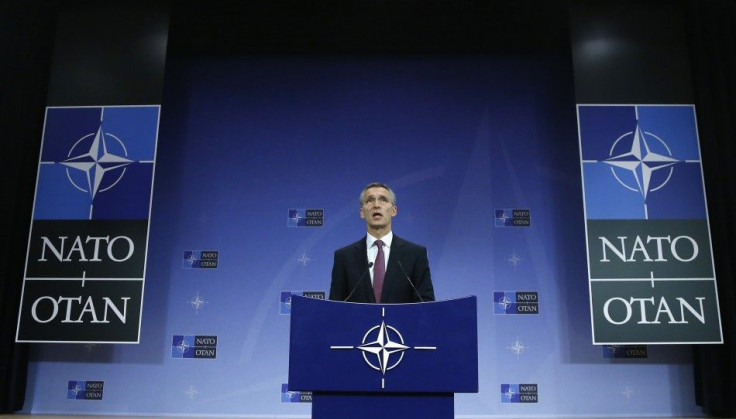Russia Will Not Launch Conventional Attack Into NATO Territory, While U.S. Ups Armoured Presence In E. Europe With Add'l. 100 Abrams And Bradley Tanks

The display of military arsenal and battle of wits between the United States and Russia continue. Lt. Gen. Frederick "Ben" Hodges, the new Army commander in Europe, on Monday disclosed the U.S. will bolster its armoured presence in E. Europe by sending an additional 100 Abrams and Bradley tanks.
The armoured fighting vehicles will be possibly stationed in Poland and the Baltic states. Moreover, Hodges said the presence of U.S. troops will also be maintained and kept in rotations there through next year "and possibly beyond." Such measures are aimed to counter Russia's expansionist dreams.
U.S. Army Europe currently has 31,000 troops. The meager number, as compared to the 280,000 at the height of the Cold War, will still greatly help provide "deterrence against Russian aggression," Hodges said, as quoted by portal Military.com. As for the armoured fighting vehicles, the Pentagon is thinking of Lithuania, Estonia and Poland as possible sites to house them.
Hodges, who replaced Lt. Gen. Donald M. Campbell earlier in December as commander of the U.S. Army Europe, believes Russia will not launch a "conventional attack into NATO territory" because it will surely lose against the 28-member alliance. An attack on a single member of the alliance would immediately release the button on Article 5, which calls on all member states to respond to and attack the enemy.
Instead, Hodges thinks the Russian strategy is to "create ambiguity." He thinks Russia, through its President Vladimir Putin, wants to "plant the seeds of uncertainty so that the alliance members lose confidence that the rest of the alliance would come to their aid if they were, in fact, attacked."
Over 4,300 combatants and civilians have been killed in eastern Ukraine since the pro-Russian rebels seized border regions in April, according to the United Nations. Almost a million people have fled the region. Ukraine, not a NATO member, had repeatedly sought the U.S.' assistance for advanced weaponry to counter both Russian troops and rebels. The U.S. has repeatedly denied such requests, providing the country with non-lethal aid instead.
Quoting an unidentified senior administration official who travelled with U.S. Vice President Joe Biden in October to Ukraine, portal Military.com said arming Ukraine would be counter-productive because "no matter how many weapons we provided to Ukraine, they were going to get outgunned by the Russians."





















